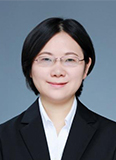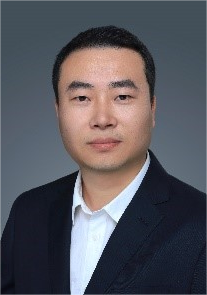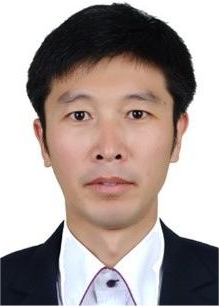
Speakers
SPEAKERS |
| Prof. Long Cheng, Institute of Automation of Chinese Academy of Sciences, ChinaLong Cheng received the B.S. (Hons.) degree in control engineering from Nankai University, Tianjin, China, in 2004, and the Ph.D. (Hons.) degree in control theory and control engineering from the Institute of Automation, Chinese Academy of Sciences, Beijing, China, in 2009. He is currently a Full Professor with the Institute of Automation, Chinese Academy of Sciences. He is also an adjunct Professor with University of Chinese Academy of Sciences. He has published over 200 technical papers in peer-refereed journals and prestigious conference proceedings. He was a recipient of the IEEE Transactions on Neural Networks Outstanding Paper Award from IEEE Computational Intelligence Society, the Aharon Katzir Young Investigator Award from International Neural Networks Society and the Young Researcher Award from Asian Pacific Neural Networks Society. He is currently serving the Associate Editor/Editorial Board Member of IEEE/ASME Transactions on Mechatronics, IEEE Transactions on Cybernetics, IEEE Transactions on Automation Science and Engineering, IEEE Transactions on Cognitive and Developmental Systems, Science China Information Sciences, Science China Technological Sciences, and Acta Automatica Sinica. Dr. Cheng is a Fellow of the IEEE and a Fellow of the IET. Plenary Lecture: Intelligent Human-Machine Interaction for Wearable Robots Abstract: Wearable robots have extensive applications in various labor-intensive industries such as rehabilitation care, elderly and disabled assistance, and unloading and transportation. Achieving natural human-machine interaction between wearable robots and users is a highly challenging task. This talk aims to introduce some recent challenges and advances on the human-machine motion compliant mechanical design, sensing and understanding technologies for human-robot interaction, and active interactive control techniques based on the intention of users. |
Prof. Chaoxu Mu, Anhui University, ChinaChaoxu Mu current research interests include nonlinear system control and optimization, and adaptive and learning systems. She is an executive director of Artificial Intelligence at Anhui University, a professor at Tianjin University, the secretary of the Artificial Intelligence and Robot Education Committee, and the deputy secretary of the Youth Work Committee of the China Association of Automation. She has written and collaborated on over 100 journal and conference papers, published 2 monographs, and been granted 10 patents. Her paper has been cited more than 1400 times in Google Scholar, with an H-index of 21. She is a Senior Member of IEEE, a Member of the IEEE Computational Intelligence Society, and a Member of the IEEE Industrial Electronics Society. Plenary Lecture: A Data-driven Feedback Relearning Method and Its Application in Uncertain Industrial Systems Abstract: With the rapid development of industrial technology, the requirements for production performance are gradually increasing. However, the complex structures and environments make systems difficult to obtain accurate models. Thus, under the influence of uncertainty or disturbances, the performance of some traditional methods may decline or even become unstable. In recent years, intelligent control methods based on reinforcement learning have become a hot topic due to their adaptability and wide application scenarios. For nonlinear industrial systems with unknown model dynamics, this report considers issues such as uncertain data samples, actuator failures, and risks caused by trials and errors, and introduces a data-driven feedback relearning control algorithm. Meanwhile, several numerical systems, manipulator systems, and servo control systems are used for analysis and validation. |
|
| Prof. Weichao Sun, Harbin Institute of TechnologyDr. Weichao Sun received the B.S. degree in automation from Central South University, Changsha, China, in 2007, and the M.S. and Ph.D. degrees in control science and engineering from Harbin Institute of Technology, Harbin, in 2009 and 2013, respectively. Dr. Sun is currently a professor at the Research Institute of Intelligent Control Systems, Harbin Institute of Technology. His research interests include robotics, autonomous vehicles, and high-performance motion control. He is an Associate Editor for several journals, including IEEE Transactions on Systems, Man, and Cybernetics: Systems, IEEE Transactions on Mechatronics, Journal of Dynamic Systems, Measurement and Control, and Mechatronics. Plenary Lecture: Hierarchical Control for Complex Tasks of Redundant Manipulators Abstract:With the widespread use of manipulators in unstructured environments and human-robot interaction, the tasks faced by robots are becoming increasingly diverse and complex. When robots perform multiple conflicting tasks simultaneously, it is necessary to plan and control the tasks according to the order of priority, i.e., hierarchical control. Currently, there are two strict assumptions for hierarchical multi-task control with strict priority: 1) precise dynamic and kinematic models; 2) tasks given by users are feasible, independent, and have the same task dimensions as the degrees of freedom of robots. These assumptions limit the practical applications of hierarchical multi-task control, especially in the field of human-robot interaction. In human-robot interaction scenarios, manipulators typically operate objects with unknown shapes and unknown masses. The special structure of hierarchical control will cause the uncertainty on some hierarchy levels to be propagated level by level from top to bottom, affecting the stability of the entire system. In addition, it is difficult for tasks to be completely independent and feasible, and the dimension can easily exceed the restriction of degrees of freedom. This lecture explores passivity-based adaptive Jacobian hierarchical multi-task control and hierarchical optimal tracking control, which eliminate the influence of model uncertainty and requirements for task dimension and feasibility under a strict priority framework. |
Prof. Yuhu Wu, Dalian University of Technology, ChinaYuhu Wu received the Ph.D. degree in mathematics from the Harbin Institute of Technology, Harbin, China, in 2012. Since 2012, he has held an assistant professor position with the Harbin University of Science and Technology, Harbin. He held a postdoctoral research position with Sophia University, Tokyo, Japan, from 2012 to 2015. In 2015, he joined the School of Control Science and Engineering at Dalian University of Technology, Dalian, China, where he is currently a full professor. His research interests are related to optimization, nonlinear control theory, and applications to the control of Boolean networks, automotive powertrain systems, and unmanned aerial vehicles. Plenary Lecture: Bayesian Potential Games and Its Application to Road Network Congestion Problem Abstract:In this talk, a new transformation that converts a Bayesian game to a so-called ex-ante agent game (a normal-form game) is introduced. Different from the existing transformation proposed by R. Selten that changes a Bayesian game to an interim agent game, we prove that the new transformation preserves potentiality. In addition, we also prove that there is one-to-one correspondence between pure Bayesian Nash equilibria (BNE) of Bayesian games (if one exists) and pure Nash equilibria (NE) of the resulting ex-ante agent games. Then, we provide a sufficient and necessary condition for a Bayesian game to have an ex-ante agent potential game. Particularly, we prove for two-player games, BPGs are exactly the Bayesian games having ex-ante agent potential games. Furthermore, by using the semi-tensor product of matrices, a potential equation for finite Bayesian games is developed. Based on the potential equation, algorithms for verifying potentiality and for searching pure BNE in finite Bayesian games are designed. Finally, the results are applied to a road network congestion problem with incomplete information. |
|




